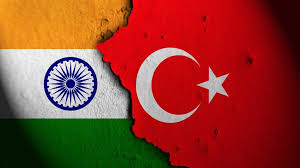Hair Transplant India vs. Turkey – An Overview
Hair transplants have become a popular solution for individuals struggling with hair loss, and two countries that frequently come up in this conversation are India and Turkey. Both nations have established themselves as top destinations for hair restoration, attracting patients from around the globe. But which one is the right choice for you? Here’s a detailed overview of hair transplants in India and Turkey to help you decide.
Cost Comparison
India:
Hair transplants in India are known for their affordability, with prices ranging from ₹40,000 to ₹1,00,000 (approx. $500 to $1,500) per session. Costs can vary based on the city, clinic, and technique (FUE or FUT).
Turkey:
Turkey is also highly cost-effective, with average prices ranging from $1,500 to $3,500 for a complete package. Many clinics offer all-inclusive deals that cover accommodation, airport transfers, and post-op care.
Verdict:
Both countries offer affordable procedures, but Turkey may seem more expensive due to its package deals, while India allows for a more tailored cost approach.

Quality of Medical Care
India:
India has a growing number of world-class clinics with experienced surgeons who specialize in hair transplantation. Many doctors are internationally trained and utilize advanced techniques like FUE (Follicular Unit Extraction) and DHI (Direct Hair Implantation).
Turkey:
Turkey is renowned globally as the “hub of hair transplants.” Istanbul alone is home to hundreds of clinics, many of which have highly skilled surgeons. Turkey is often credited with popularizing FUE techniques, and the country’s medical tourism industry is well-developed.
Verdict:
Both countries provide high-quality medical care, but Turkey is more established as a global leader in hair transplants.
Popularity and Patient Volume
India:
India attracts many patients from South Asia, the Middle East, and Africa. Its affordability and proximity make it a go-to destination for those in nearby regions. However, it is still growing in popularity on the global stage.
Turkey:
Turkey leads the world in the number of hair transplants performed annually, attracting patients from Europe, the U.S., and the Middle East. Its reputation for hair transplants is unmatched, making it a preferred choice for international medical tourists.
Verdict:
Turkey is more popular globally, though India is catching up.
Techniques and Technology
India:
Indian clinics offer a range of techniques, including:
- FUE (Follicular Unit Extraction): Minimal scarring, faster recovery.
- FUT (Follicular Unit Transplantation): Suitable for patients requiring more grafts.
- DHI (Direct Hair Implantation): A premium technique offering precision.
Turkey:
Turkish clinics excel in:
- FUE: Widely practiced and perfected.
- Sapphire FUE: A more advanced FUE method using sapphire blades for precision.
- DHI: Increasingly common in premium clinics.
Verdict:
Both countries are technologically advanced, but Turkey often has a slight edge in adopting and refining newer techniques.
Travel and Accessibility
India:
India is well-connected by international flights, and major cities like Delhi, Mumbai, and Bangalore have a wealth of clinics. Visa policies are relatively straightforward for most countries.
Turkey:
Turkey, particularly Istanbul, is a global hotspot for medical tourism. It offers excellent connectivity from Europe, Asia, and the Middle East. Visa policies are tourist-friendly, and many clinics assist with travel arrangements.
Verdict:
Both countries are accessible, but Turkey’s focus on medical tourism makes the process smoother for international patients.
Packages and Services
India:
Indian clinics typically charge for the procedure alone. While some clinics offer accommodations or airport transfers, these are not standard.
Turkey:
Most Turkish clinics offer all-inclusive packages that cover:
- Accommodation in a luxury hotel
- Airport transfers
- Translator services
- Post-op care products
Verdict:
Turkey’s all-inclusive packages make it more appealing for international patients looking for convenience.
Cultural and Language Comfort
India:
India is known for its hospitality and offers a variety of cultural experiences. English is widely spoken in clinics, and international patients often find it easy to communicate with medical staff.
Turkey:
Turkey is equally hospitable and has a strong focus on international medical tourism. Many clinics provide translators for languages like English, Arabic, French, and German.
Verdict:
Both countries are culturally rich and accommodating, but Turkey’s focus on multilingual services may offer an edge for non-English speakers.
Aftercare and Follow-Up
India:
Indian clinics provide post-operative care, but international patients may find follow-ups challenging due to travel distance. Some clinics offer virtual consultations for convenience.
Turkey:
Turkish clinics emphasize aftercare, often including it in their packages. However, as with India, in-person follow-ups may require additional travel.
Verdict:
Turkey’s aftercare packages are more robust, but virtual follow-ups in both countries are becoming standard.
Both India and Turkey are excellent choices for hair transplants, offering high-quality care at affordable prices. However, the decision ultimately depends on your personal preferences:
- Choose India if you’re looking for a cost-effective procedure closer to South Asia, prefer a pay-as-you-go approach, or value cultural familiarity.
- Choose Turkey if you want a globally recognized destination with all-inclusive packages, seamless travel arrangements, and top-notch expertise.
Whichever you choose, ensure you research clinics thoroughly, read reviews, and consult with a certified surgeon to achieve the best results. Hair transplants are a life-changing investment, so take the time to find the option that suits your needs best!
FAQ: Hair Transplant India vs. Turkey
Which country is better for a hair transplant, India or Turkey?
Both countries excel in hair transplant procedures, offering affordable options with skilled surgeons. India is more popular among South Asian patients, while Turkey is a global leader, especially for European and Middle Eastern clients. Your choice depends on factors like budget, travel convenience, and package inclusions.
Why is Turkey so popular for hair transplants?
Turkey has established itself as a global hub for hair transplants due to its experienced surgeons, advanced techniques (like FUE and DHI), affordable all-inclusive packages, and seamless medical tourism infrastructure. Istanbul alone performs thousands of procedures annually.
Are hair transplants cheaper in India or Turkey?
India tends to be slightly cheaper, with procedures starting around $500, depending on the clinic and technique. Turkey, while affordable, typically charges $1,500 to $3,500 for complete packages that include accommodations and post-operative care.
Do both countries offer advanced hair transplant techniques?
Yes. Both India and Turkey offer advanced techniques like:
- FUE (Follicular Unit Extraction)
- FUT (Follicular Unit Transplantation)
- DHI (Direct Hair Implantation)
- Sapphire FUE (more common in Turkey)
What about package deals?
- India: Packages are rare; most clinics charge for the procedure alone. Patients arrange accommodations and travel separately.
- Turkey: All-inclusive packages are standard, often covering accommodation, airport transfers, translator services, and aftercare.
How experienced are the surgeons in India and Turkey?
Both countries have highly experienced surgeons. In Turkey, the volume of procedures performed has given doctors significant expertise. In India, many surgeons are internationally trained and adept at handling diverse hair transplant cases.
Which country has better facilities and technology?
Both countries have modern, well-equipped clinics. However, Turkey has invested heavily in medical tourism, with clinics offering state-of-the-art facilities and newer technologies like Sapphire FUE more frequently.
What’s the average recovery time after a transplant in either country?
Recovery time is similar for both countries:
- Most patients can resume daily activities within 7-10 days.
- Visible results start appearing after 3-6 months, with full results taking 12-18 months.
Is language a barrier in India or Turkey?
- India: English is widely spoken, especially in medical clinics, making communication easier for international patients.
- Turkey: Many clinics provide multilingual translators for English, Arabic, French, and other languages.
What if I need aftercare or follow-ups?
- India: Aftercare is typically offered, and some clinics provide virtual consultations for international patients.
- Turkey: Aftercare is often included in package deals. Clinics usually provide post-op kits and online follow-ups.
Which destination is easier to travel to?
- India: Best for patients in South Asia, the Middle East, or Africa due to proximity and affordable flights.
- Turkey: Well-connected to Europe, the U.S., and the Middle East, with many clinics assisting with travel logistics.
What should I consider before choosing a country?
- Budget (procedure-only vs. all-inclusive packages)
- Proximity and travel costs
- Reputation of the clinic and surgeon
- Reviews and patient testimonials
- Aftercare and follow-up options
Are there risks with getting a hair transplant abroad?
Risks are minimal if you choose a reputable clinic in either country. Always research the clinic, check certifications, and read reviews before making a decision.
How can I ensure the best results?
- Choose an experienced surgeon.
- Follow post-operative care instructions.
- Understand that full results take time (12-18 months).
- Manage expectations, as hair density may not fully match your natural hair.

















